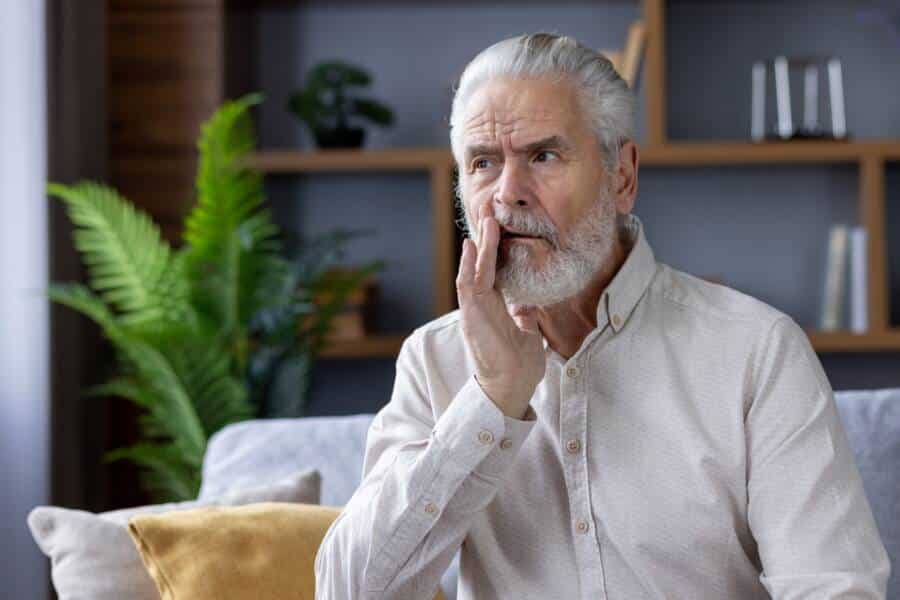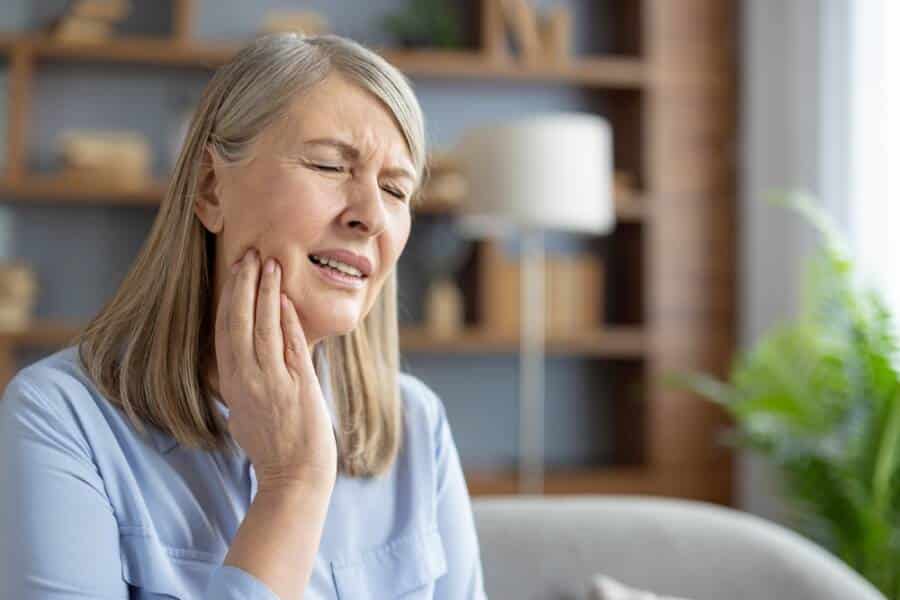Dental issues in older adults are oftentimes overlooked, especially when it comes to the health of seniors. The more we age, the harder it gets to keep our bodies in tip-top shape, and our mouths aren’t an exception to this rule. There’s a series of problems that might arise inside our mouths, affecting the dentures and gums.
Even if our overall oral health managed to improve in the last few years, seniors still continue to find themselves more susceptible to a series of dental issues like tooth loss, root decay, uneven jawbones, periodontal gum disease, gum recession, and any other serious issues like oral cancer.
Senior dental care is a crucial part of self-care, especially in your later years. Just as crucial as planning for retirement, implementing a proper game plan to protect your oral health is also needed for a long and fulfilling life.
Even if you have retired. Well, in this article, we decided to put together a more comprehensive guide to proper oral health for seniors, which also includes the most common oral issues that older adults should expect, tips for proper dental care for seniors, and how to efficiently prevent dental issues.
Moreover, you will also read more about what to expect when you’re visiting the dentist as a senior and what your options are when it comes to paying for dental care in retirement. The main goal is to help you avoid unwanted expenses and debilitating and common dental issues.

Table of Contents
ToggleWhat’s the main cause of dental problems in elderly people?
The more we advance in middle age and tap into seniority, there’s a wide number of factors to consider that might contribute to the increasing decline of our oral health. But truth be told, it’s normal to find it more and more challenging to keep a healthy mouth during retirement, especially since our overall health is harder to maintain.
For example, many seniors experience something known as dry mouth, either because of age or medication that might have been introduced into their daily routine. A dry mouth is a well-known contributor to tooth decay and might cause a lot of cavities.
Just as likely are receding gums, which oftentimes expose the softer, weaker parts of the teeth, making them more susceptible to tooth decay and cavities. A lack of proper dental care insurance coverage might also represent a major cause of oral health issues in elderly people.
Moreover, when you can’t afford constant cleanings after retirement and you no longer have the option of accessing your employer’s health care benefits, it’s harder to keep up with your health demands.
Constant checkups are more likely to cause problems like gum disease and periodontitis, which often go unnoticed by an untrained eye. Chronic conditions like arthritis, diabetes, heart disease, and chronic obstructive pulmonary disease (COPD) are well known to contribute to gum disease.
In fact, each of these conditions is more likely to be seen in elderly people. According to the CDC, some social factors, like economic disadvantage and being a member of a minority, might contribute to the likelihood of suffering from dental issues in older age.
Common dental issues for seniors
For elderly patients, dental care is all about treating and preventing conditions that are more likely to appear with age. It makes things more difficult, as many of these conditions could be exacerbated or even triggered by an increasingly sedentary lifestyle but also by the introduction of new medications and treatments.
It’s very important to familiarize yourself with some of the most common issues seniors might face when it comes to the health of their teeth, so you can better understand how to prevent them and what factors in our lives would make them more likely to appear.
Tooth darkening and tooth and root decay
Dentin is also known as the softer tissue that’s underneath the tooth’s enamel. As we advance in age, dentin modifies, which, in combination with a thinning enamel, could cause the outer appearance of our teeth to darken.
Darkened teeth might also be caused by many years of consuming coffee, tea, wine, cigarettes, and any other type of product that is known to cause staining. Receding gum lines might also contribute to the exposure of the softer tooth tissue, which can also cause tooth decay. When the gums recede, it might also lead to root decay. In order to prevent these issues or even slow their progress, you will need proper oral hygiene.
Brushing and flossing twice per day is only the beginning. You might also want to avoid foods with high sugar content and quit smoking, especially if that’s something you’re still struggling with. Constant dental cleanings and check-ups are also mandatory to catch these issues before they become too destructive.
You will want to look for tubes of toothpaste with fluoride and don’t hesitate to try a fluoride treatment. It’s one of the most effective measures against such conditions.

Loss of teeth and an uneven jawbone
Tooth loss and a slowly deteriorating jawbone are oftentimes caused by periodontitis, which is one of the most serious gum infections out there. Ongoing inflammation might cause the ligaments that hold the teeth to loosen.
When left untreated, it can cause the tooth to fall out and the jawbone to slowly degrade. As periodontitis can be left unnoticeable in the early stages, it’s highly important to have a dentist examine your mouth on a regular basis.
A well-trained eye will catch this rather common issue in seniors even before it results in tooth loss. Moreover, patients who suffer from cardiovascular disease, diabetes, and aspiration pneumonia are also at risk of experiencing such an oral health concern. If, by any chance, you fall into any of these categories, you need to book an appointment with your dentist.
Dry mouth and medication side effects
A dry mouth, commonly known as xerostomia, might lead to tooth decay and cavities. Age is also a super significant factor in dry mouth, especially due to slower production of saliva, but also as a result of the introduction of brand new medications into our routines.
It’s also quite common to ask for more medication as we advance in age, even if some of these medications might cause your mouth to dry up. This is a constant, pervasive issue in the elderly community, as
Periodontal gum disease in seniors
As the CDC explained, 2 out of every 3 seniors suffer from something known as periodontal gum disease in the United States. There’s a variety of reasons why periodontitis occurs in seniors, some of which include dry mouth, receding gums, gingivitis, smoking, poor oral health, an increasing vitamin C deficiency, obesity, poor nutrition, diabetes, rheumatoid arthritis, and other conditions that could affect the immune system.
Periodontal disease in senior patients is oftentimes prevented with constant visits to the dentist and proper oral hygiene. Moreover, seniors should strive to get the nutrition they need and avoid junk food and other sugary drinks.
Constant exercise to remain in a proper weight range is also advised. Hydration is very important, and if you still need to get rid of a nasty smoking habit, quitting will significantly lower your risk.
What also matters is what you use for your teeth. Here’s a great toothpaste with amazing antibacterial properties!
If you found this article insightful, we also recommend checking out: 7 Everyday Things That Can Give You Type 2 Diabetes





